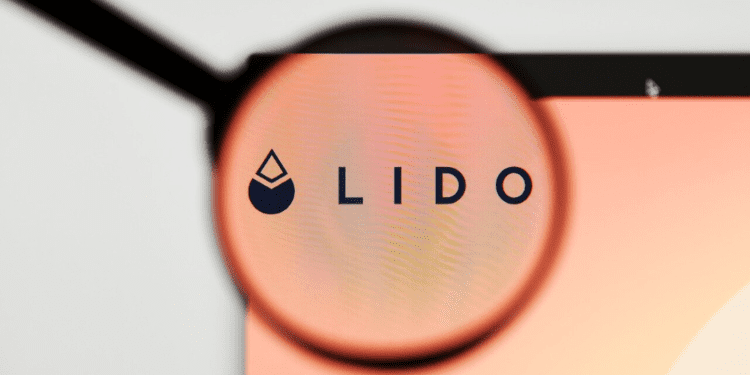- Ethereum community members warn that Lido might be the biggest attack on Ethereum’s decentralization, as it owns a third of all staked ETH.
- Critics have argued that the staking provider might stand in the way of Ethereum gaining approval from global power.
Lido Dominance, a liquid staking solution with about a third of all staked Ethereum (ETH), has prompted concerned community members to speak on its growing influence and effects on the Ethereum network.
Ethereum’s chief decentralization officer, Evan Van Ness, said in an X (formerly Twitter) post on Friday, “Lido may be the biggest attack on Ethereum’s decentralization (“credible neutrality”) in our entire history.”
As of June 2022, Lido accounts made up 31% of all staked Ether on the Ethereum proof-of-stake blockchain, the Beacon chain, and critics at that time had also expressed fears that it would threaten Ethereum’s decentralization. Lido DAO holders voted to determine whether the staking service provider would self-limit. However, on July 1st, the largest Ethereum liquid staking provider, Lido Finance, voted by a 99.81% majority not to self-limit.
According to Decryt report, the amount of ETH staked has risen nearly 95% from just over $22 billion to about $41.6 billion. Of the $41.6 billion, Lido accounts for 32.7% of all staked ETH on the market—nearly four times higher than the amount staked by runner-up Coinbase at 8.7%.
The warning from critics and community members is backed by the voting leverage that Lido gains as it grows, although the platform started by countering centralized exchange. Critics warn that Lido and other liquid staking systems may accrue unfair authority over Ethereum and that their decentralized autonomous organizations may become overly centralized in managing themselves. This might undermine what they see as the DeFi space’s democratic ideal, in which users can use their tokens to vote on the future of projects.
Ethereum investor Ryan Berckman also cautioned that the “realistic worst-case scenario” of Lido’s growing dominance is Ethereum’s reputation among corporations and governments, thwarting the network’s hope of being accepted as a global settlement layer in the financial system.
“If this were to happen, it may affect the order of magnitude of our growth rate and, therefore, Ethereum’s benefit to humanity and the number of zeroes on the long-term ETH valuation,” he tweeted. “Given this path-dependence, Lido uniquely threatens our reputation…Google does not “threaten” the internet the way that Lido threatens to potentially make Ethereum’s outcome orders of magnitude smaller.”
He added that while some might not see Lido’s unrestricted accumulation as a problem in the present, it is the only “known” material risk keeping Ethereum from reaching its peak value in the next ten to fifteen years.
Sacha, an X (formerly Twitter) user affiliated with Lido Finance, gave his opinion on worries about Lido’s growth affecting Ethereum’s reputation. In his words, “Lido is not a single entity. It is a coordination layer between a multitude of stakers and node operators,” and that throttling the staking provider would contrast Ethereum’s principle as a home for free and permissionless innovation.
According to CoinGecko data, Lido’s DAO token currently ranks as the 36th most traded token, with a market valuation of just over $1.35 billion. In comparison, the sETH token is the fifth most actively traded cryptocurrency, with a market capitalization of over $14 billion.












